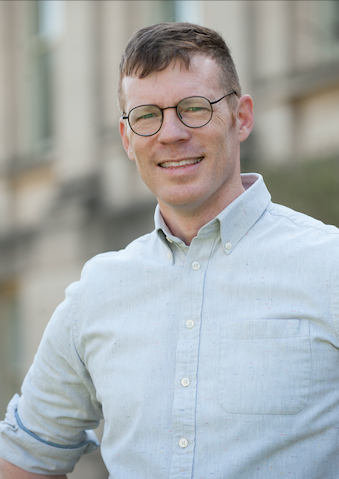A partnership between Iowa Sister States and the UI Conversation Center is providing intercultural exchange opportunities for UI students as well as high school students across the state of Iowa.
It all started with a friendship between Benjamin Hassman, director of the UI Conversation Center, and Karla McCollum, executive director of Iowa Sister States. The pair were determined to continue citizen diplomacy and linguistic and cultural exchange efforts despite challenges posed by the COVID-19 pandemic.
The result? An innovative use of technology to provide virtual education exchange opportunities for students in Iowa and many of the nine Iowa Sister State locations across the world.
Hebei Province, China

Benjamin Hassman
The first exchange occurred in May with high school students from Hebei Province, China. After brief introductions and welcoming remarks from Hebei administrators and Iowa Sister States China Committee Chair Will Zhang (faculty member at Des Moines Area Community College), 15 students from Hebei Province were placed in small break-out rooms with 18 students from five Iowa high schools (Seymour, Valley, Pella Christian, Osage, and Lawton-Bronson)—all via Zoom. Group facilitators included Carolina Coronado-Park, director of the University of Northern Iowa’s Culture and Intensive English Program, and two UI students, Erin Golden and Kelly Vu, both peer leaders in the UI Conversation Center. They provided conversation prompts to engage participants in conversation that feels more fun than serious. “Peer leaders have experience with intercultural communication and working across cultural and linguistic divides,” said Hassman, a faculty member in UI Department of Rhetoric. “The high school students from both China and Iowa started the experience being a bit nervous, but in a relatively short amount of time they became relaxed and more comfortable talking with each other. Conversation became animated and the students seemed to have a lot of fun.”

Karla McCollum
McCollum agreed, noting, “Many of the participants were very thankful for the experience, as they might not have otherwise had an opportunity to interact with someone from another country. It was fun to see the kids come to life and interact.”
McCollum agreed, noting, “Many of the participants were very thankful for the experience, as they might not have otherwise had an opportunity to interact with someone from another country. It was fun to see the kids come to life and interact.”
Yamanashi Prefecture, Japan
The next virtual education exchange will take place on August 5 with five students from Norin High School in Yamanashi Prefecture, Japan. Because high schools in Iowa don’t follow the same academic schedule as in Japan, the August 5 event will pair Norin High School students directly with trained undergrad partners from the Conversation Center. A larger-scale event will take place later this fall and will include students from several high schools across the state of Iowa.
“Planning for a series of events with Yamanashi Prefecture is an example of taking a long-term view to develop relationships,” said Hassman. “This is exciting for us because those personal connections are the heart of organizational and civic relationships.”
McCollum noted the 61-year relationship between Yamanashi Prefecture and the state of Iowa, as the Sister State relationship was established in 1960 after Iowa sent 35 breeding hogs and 100,000 bushels of corn to aid in the recovery from a typhoon that devastated Yamanashi Prefecture—an event known as the Iowa Hog Lift. “Our goal is to set up the next generation of connections for Iowans and Yamanashi,” commented McCollum. “We want to make sure that we are setting this up for another 60 years of friendship.”
Future locations
Plans are underway to create additional opportunities for exchange with Iowa Sister States in Italy and Ukraine, with an eye towards involving most—if not all—Sister States in the near future.
“The virtual education exchange format makes an impact quickly, isn’t difficult to organize, and it is more accessible because it doesn’t depend on funding for travel,” said McCollum. “Despite COVID, we have been able to maintain connections and international friendships because of events like this. In my mind, this is one of the most important things we can do.”